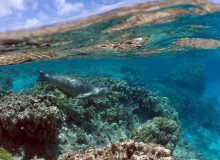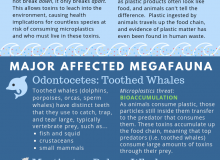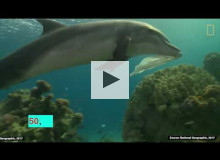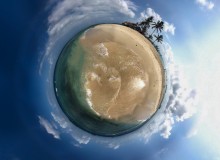oceans
Northwestern University
The first of three episodes, this podcast focuses on what sea level rise looks like in the Florida Keys and how it is being addressed.
Digital Editor, Planet Forward
As you pack up for your next trip to the beach, the last thing you want to think about is microplastic. Yet, the issue remains. Challenge yourself to reduce plastic waste with these simple swaps.
The George Washington University
What is happening to our coral reefs, and can coral nurseries help with reef restoration?
SUNY Environmental Science and Forestry
There is more then just plastic in the great pacific garbage patch.
George Washington University
When I arrived in Hampton, Virginia, I met with Jamie Chapman, who has lived in the area for 20 years. Chapman is proud of his waterfront home, which he bought 1998 after the cottage survived double northeasters.
Planet Forward Correspondent | Eckerd College
Even when most microplastics are consumed by smaller marine species, no animal—including humans—is immune to its risks as it rises through the food chain.
George Washington University
We are seeing water bottle filling stations systems pop up across public spaces, and especially on college campuses. Increasing these stations across the country can help clean up our oceans.
George Washington University
By no longer allowing California's swordfish fishery to use driftnets, the state has prioritized the creation of an environmentally sound industry and stood up against outdated, harmful practices.
Northwestern University
Abelardo “Tito” Nuñez Davies first came to Pelican Island 15 years ago. It was much larger then. The small hut he and his mother share started out in the middle of this tiny oasis of sand. Now, the ocean laps at their doorstep.
The lemon shark's yellow coloring serves as a camouflage when swimming over the sandy seafloor in its coastal habitat. (Creative Commons)
Planet Forward Correspondent | Georgetown University
Sharks are among some of the most threatened fishes in the world’s oceans. I spent a semester at the Bahamas' Cape Eleuthera Institute to help catch baby lemon sharks for research.







